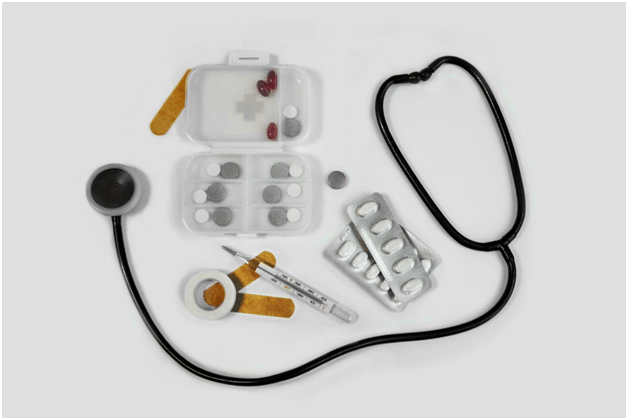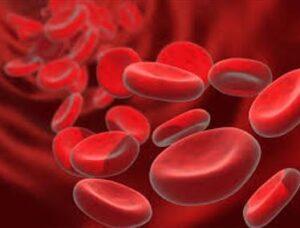What is Alzheimer’s Disease?: The Complete Guide to Alzheimer's

Alzheimer’s is a disease that affects 6 million Americans. Despite common belief, these 6 million afflicted individuals are not all senior citizens, according to the Alzheimer’s Association. In fact, age doesn’t always play a role in the onset of Alzheimer’s. More specifically, approximately 1 in 9 sufferers are 65 or older.
Due to the fact that it causes progressive mental deterioration, it is imperative for sufferers to seek treatment accordingly. In this blog, we’ll discuss Alzheimer’s disease in detail, including statistics, common symptoms, treatment, and symptoms. Read on below to learn more.
What is Alzheimer’s Disease?
Alzheimer’s disease is a neurological condition and type of dementia that causes the brain to shrink, simultaneously killing brain cells as well. As these cells die, problems occur with the person’s thinking, behavior, and ability to perform daily tasks. Alzheimer’s is associated with a build-up of certain proteins and chemicals in the brain. It affects the most important parts of the brain that control thought, memory, and language.
As the most common form of dementia, it accounts for 60-80% of all dementia cases. And while not every Alzheimer’s patient is over 65, the greatest risk factor is increasing age. Anyone affected under 65 is given a diagnosis of early-onset Alzheimer’s, and it can be in its early, middle, or late-stage despite the person’s age.
Symptoms of Alzheimer’s Disease

According to the National Institute on Aging, Alzheimer’s disease causes brain atrophy, a process in which the neurons are injured and die throughout the brain. As a result, connections between networks of neurons break down and those segments of the brain start to shrink. By its final stage, the volume of the brain actually reduces overall.
The signs and symptoms of Alzheimer’s vary depending on the age and person. While they may be mild at an early age, they could get worse as the years pass. As mentioned previously, this disease progresses in several stages, including the mild stage, moderate stage, and last stage. In the mild stage of Alzheimer’s, a person appears healthy but has increasing amounts of trouble making sense of the world. Some of the common symptoms of mild-stage Alzheimer’s include:
- Memory loss
- Poor judgment and bad decisions
- Taking too long to complete simple, daily tasks
- Repeating questions
- Difficulty handling money/paying bills
- Losing and misplacing things
- Mood and personality changes
- Increased anxiety or aggression
In the moderate stage, more intensive supervision and care are necessary, which can be difficult for the family. Symptoms of moderate-stage Alzheimer’s may include:
- Confusion and memory loss
- Difficulty with language
- Issues with reading, writing, and numbers
- Difficulty organizing thoughts and logic
- Problems coping with new situations
- Difficulty recognizing family members and friends
- Hallucinations and delusions
- Inappropriate bursts of anger
- Repetitive statements or movements
- Occasional muscle twitches
Finally, the last stage of Alzheimer’s is severe, often causing people to lose their ability to communicate with others and depend on them for care. Common symptoms of late-stage Alzheimer’s include:
- Inability to communicate properly
- Seizures
- Skin Infections
- Difficulty swallowing
- Groaning, moaning, and grunting
- Loss of bowel and bladder control
Diagnosis and Treatment of Alzheimer’s

If you suspect you or someone you love may have Alzheimer’s, much like any other disease, obtaining a diagnosis will require some tests. If you’re getting ready for an appointment and are curious about what to expect from Alzheimer’s testing, the following are what’s included in the testing necessary to diagnose Alzheimer’s.
- Physical Examination – Tests the patient’s reflexes, ability to get up from the chair and walk across the room, muscle tone, and strength
- Neurological Examination – Checks the patient’s sense of sight, hearing, coordination, and balance
- Complete blood count (CBC) – Tests the liver functions, folate levels, vitamin B12 concentration, electrolytes, blood glucose levels, thyroid function, and HIV
- CT Scan – Checks the patient’s severity of brain degeneration
- MRI – Provides a more detailed look at the brain, detecting things like the presence of tumors or nerve damage
- EEG – Detects abnormal brain wave activity
- PET – Identifies proteins that are associated with Alzheimer’s disease
If you’re curious about what would happen upon an Alzheimer’s diagnosis, there are several treatment methods. The most common treatments include focusing on maintaining mental functions, behavioral changes, and slowing or delaying the disease’s progression. This treatment comes in the following forms:
Medication – AChE inhibitors are used to compensate for the death of cholinergic neurons. They work by inhibiting ACh and restoring synaptic levels.
Self-care – Just as medical attention is needed, self-care is highly important in those with Alzheimer’s. This may look like:
- Adapting situations to the need of an Alzheimer’s patient
- Creating a safe and supportive environment
- Keys, wallets, mobile phones, and other valuable things are placed at the same place at all times
- Using a calendar or whiteboard to schedule daily tasks
- Exercising and eating a healthy diet
- Helping sufferers maintain brain health
Consult with specialists – The family of the patient should consult a neurologist, psychiatrist, or psychologist for the overall treatment and recovery of the patient.
How to Prevent Alzheimer’s Disease

According to NHS, the true cause of Alzheimer’s is yet to be determined. Therefore, there is no definitive way to prevent its onset. However, there are many steps one can take to maintain ideal health and reduce your overall risk. Read on below to learn more.
Manage your numbers – One should seek regular checkups of their blood pressure, blood sugar, and cholesterol. Studies show these three factors are responsible for Alzheimer’s.
Check your weight – If you are losing weight regularly, you should consult a doctor. Also, a study found that obesity can change the brain in a way that increases the chances of Alzheimer’s.
Exercise regularly – Exercise is effective not only for Alzheimer’s but it helps for many other diseases as well.
Challenge your mind – You should challenge your mind with new challenges every day. That will help in retaining your memory and provides good exercise for the brain.
Don’t smoke – Quit smoking and avoid all forms of tobacco if necessary.
Eat a healthy diet – Fruits and green vegetables should be added to your diet as they are rich in fiber and vitamins. Also, try to limit the amount of saturated fat, added sugars, carbs, sodium, and alcohol you consume.
As you can see, Alzheimer’s disease is a progressive degenerative disorder that is incurable but treatable. And the earlier you can get a diagnosis, the better. Hopefully, now that you understand the symptoms and causes of Alzheimer’s you can take care and monitor your health to ensure nothing as serious as this goes undetected.



